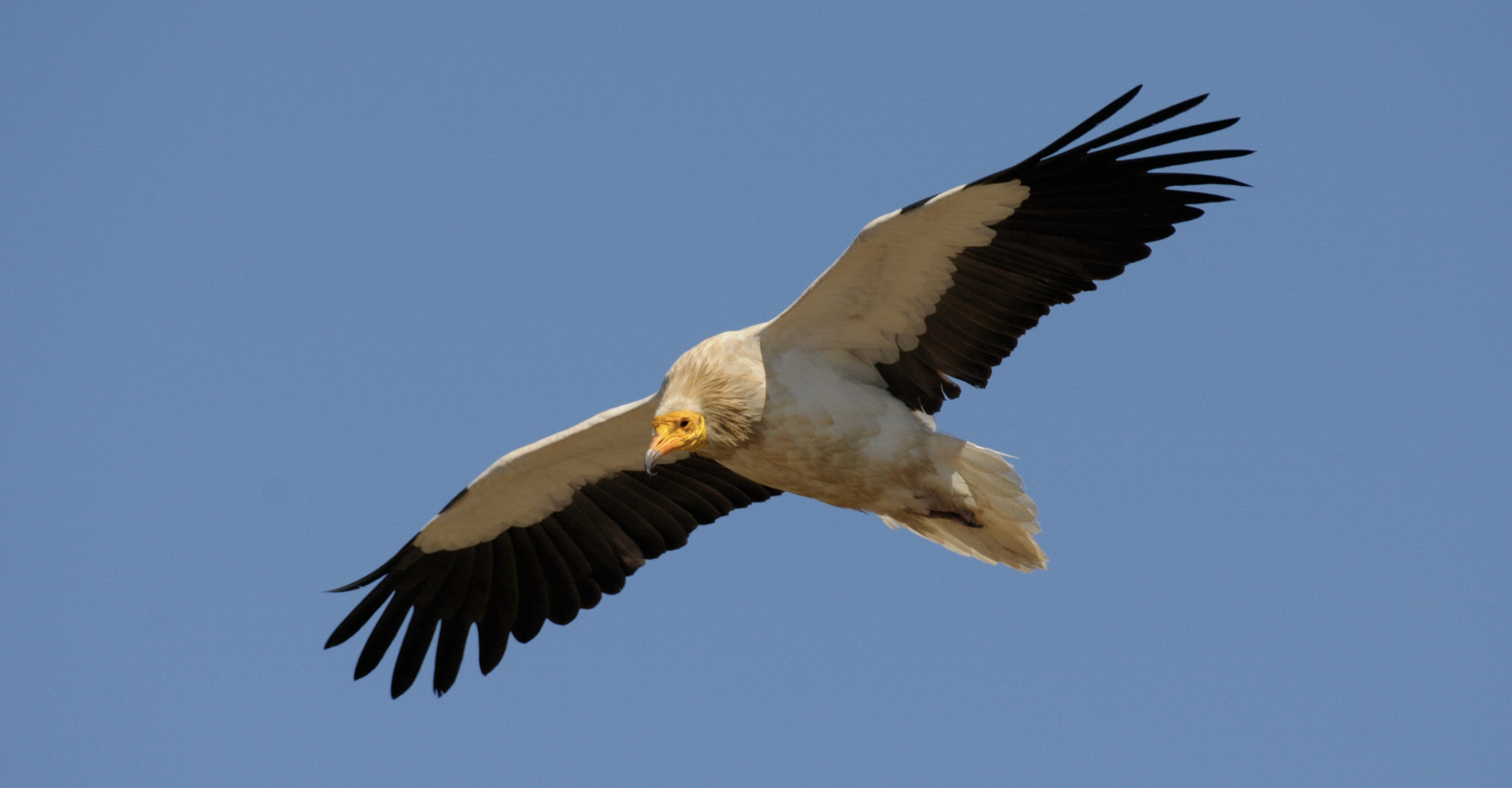An important workshop for the conservation of the Egyptian vulture population in the Western European flyway took place from 26th to 27th March 2018 in Alcántara, Extremadura – Spain. More than 25 participants from France, Portugal and Spain gathered to discuss priorities for the conservation of this globally endangered species in western Europe.
The Workshop was organized by the VCF, the Regional Government of Extremadura (Junta de Extremadura) and the Natural Park of Tajo International. Amongst the participants there were representatives from the governmental sector, research institutes and universities, and of course staff from the NGOs working on Egyptian vulture conservation.
The Director General of the Environment department of the Regional Government of Extremadura (Pedro Muñoz Barco), the Director of the NP Tajo International (Alfredo Anega) and the Mayor of Alcántara (Luis Mariano Muñoz) welcomed all participants in the spectacular setting of the NP Tajo International visitor centre, and all the participants could listen talks summarising the present situation, and conservation challenges, of the Egyptian vulture in France, Portugal and Spain. The LIFE RUPIS project, in which the VCF also participates, was also presented by our colleagues from SPEA, while VCF staff discussed the priorities of the recently approved Vulture Multi-species Action Plan to conserve African-Eurasian Vultures (Vulture MsAP) in terms of Egyptian vulture conservation, in order to progress with the implementation of that global vulture conservation plan.
The high-priority threats already identified in the Vulture MsAP were discussed within an Egyptian vulture context: poisoning with poison baits (but also with pesticides, vet products, lead) continues to kill birds in some parts of the European range, as do collision with wind-turbines and electrocution on power lines. Disturbance at nesting territories is also an issue.
Some priorities were identified, namely the continuation of efforts to mitigate adult mortality, that seems to be the key factors explaining declines. Another strong message from the audience was that this is the right time to tackle the conservation of the species ar metapopulation level, as all these populations are somehow connected, and it now makes sense to enlarge the scope of the effort and work at flyway scale, not only at local or regional level, where advances could be mitigated by mortality elsewhere.
The second part of the workshop was dedicated on proposing actions to mitigate all these identified threats – the working groups identified over 50 conservation actions in the European Western Flyway.
The meeting took place at the Educational Center of the Natural Park of Tajo International, Alcántara, Cáceres, and on the second day the group had the opportunity to explore the area – and watch, under clear blue skies and in perfect spring conditions, some Egyptian, cinereous and griffon vultures. The Natural Park Tajo International along more than 60 km of the international stretch of the Tajo river between Spain and Portugal. It hosts a large number of threatened or endangered species, including Iberian imperial eagle (2 pairs), Bonelli’s eagle (8 pairs), golden eagle (10 pairs), black stork (25 pairs), cinereous vulture (50 pairs) and of course the target species to this workshop, the Egyptian vulture (30 pairs).
The organization of the Workshop was financially supported by the The Municipality of Alcántara and EcoEnergías del Guadiana – a company based in Badajoz, Extremadura, whose activity is focused on the development of Renewable Energy and Energy Efficiency, participating in the promotion, construction and operation of photovoltaic solar power plants. The company has a strong environmental component in its projects and supports various programs and activities for the conservation of biodiversity.


